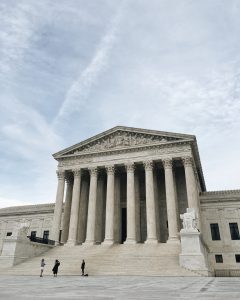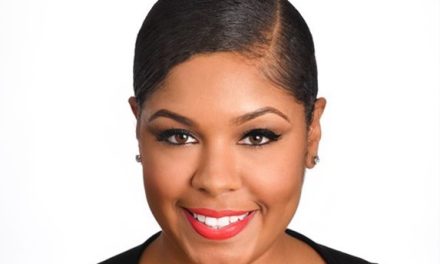By AFRO Staff
The Supreme Court eliminated the use of affirmative action in higher education on June 29, siding with the conservative group, Students for Fair Admissions (SF, which alleged discrimination against Asian applicants. The ruling means that race will no longer be considered in the admissions process for colleges and universities across the United States.
Both schools at the heart of the two affirmative action cases being decided, the University of North Carolina (UNC) and Harvard University, responded to the ruling. Affirmative action was struck down at UNC with a 6-3 vote, in addition to a 6-2 vote finalized in the Harvard decision.
“Carolina remains firmly committed to bringing together talented students with different perspectives and life experiences and continues to make an affordable, high-quality education accessible to the people of North Carolina and beyond,” UNC Chancellor Kevin Guskiewicz said in a statement after the decision was announced. “While not the outcome we hoped for, we will carefully review the Supreme Court’s decision and take any steps necessary to comply with the law.”
Harvard President Claudine Gay said in a statement that the ruling was “ a decision that carries weight not only for Harvard as an institution, but for many of us as individuals.”
“Today is a hard day, and if you are feeling the gravity of that, I want you to know you’re not alone,” said Gay.
Elected officials, community leaders and education advocates immediately began to respond to the ruling, which will significantly impact opportunities for Black students looking to attend traditionally White institutions.
President Joe Biden spoke on the decision just hours after it was made.
“We need a new path forward, a path consistent with the law that protects diversity and expands opportunity. What I propose for consideration is a new standard where colleges take into account the adversity a student has overcome when selecting among qualified applicants,” said Biden. “Let’s be clear, under this new standard– as it was true under the earlier standard–students first have to be qualified applicants. Once that test is met, then diversity should be considered, including a student’s lack of financial means, because we know too few students of low-income families, whether they are in big cities or rural communities, are getting an opportunity to go to college.”
Maryland Speaker of the House Adrienne A. Jones called the decision “another disheartening blow to our country’s efforts to address the pervasive gaps created by slavery, Jim Crow and segregation.”
“I know first-hand the impact a college education can have on the trajectory of one’s life,” she said in a statement. “Abolishing affirmative action will have far reaching implications for Marylanders. While this is a profoundly sad day for our country and our state, I have already begun working with Attorney General Brown to look at all our options to mitigate the effects of this extreme decision by the Supreme Court.”
Known for their political and policy work, members of Black greek-letter organizations spoke on the issue.
“Black candidates have met and often exceeded admissions criteria. Still, data confirms that Blacks are only 5 percent of all lawyers, 5.7 percent of all doctors and 4 percent of all engineers in the nation, and less than 1 percent of all certified public accountants while Blacks comprise 13 percent of the nation’s population,” said the collective five Black fraternity political action committees within the Divine Nine, in a written response to the decision. “What affirmative action has done is altered the perception of ‘merit’ by including individuals whose talents and training clearly qualified them for admission to college or hiring for employment but were denied opportunities due to implicit bias and outright discrimination.”
Jessica Giles, executive director of Democrats for Education Reform DC (DFER DC) was disappointed by the majority opinion of the court.
“By gutting equitable access to our country’s higher education system, today’s majority conservative Supreme Court ruled against Black and Brown students’ access to the American Dream,” said Jessica Giles, executive director of Democrats for Education Reform (DFER DC), in a statement.. “This ruling erases decades of progress – a particularly concerning reality given our higher-education system continues to uphold systemic, racist barriers to entry that keep doors of opportunity closed on Black and Brown students.”
“Now more than ever, we must upend the college admission process to ensure it is optimized for racial equity, starting by abolishing legacy preference – a textbook example of systemic racism,” Giles continued. “In the absence of race conscious admissions policies, we strongly urge D.C. elected officials to pass policies that ensure our Black and Brown students complete postsecondary education and can obtain economic prosperity.”
While millions across the country lamented the outcome of the two cases, others praised the ruling handed down by the Supreme Court and look forward to the changes the decision will put into action.
“Ending racial preferences in college admissions is an outcome that the vast majority of all races and ethnicities will celebrate. A university doesn’t have real diversity when it simply assembles students who look different but come from similar backgrounds and act, talk, and think alike,” said Students for Fair Admissions (SFFA). “Beginning today, America’s colleges and universities have a legal and moral obligation to strictly abide by the Supreme Court’s opinion. These obligations compel the removal of all racial and ethnic classification boxes from undergraduate and postgraduate application forms.”
The post Elected officials, community leaders and education advocates weigh in on Supreme Court decision to nix affirmative action appeared first on AFRO American Newspapers .











